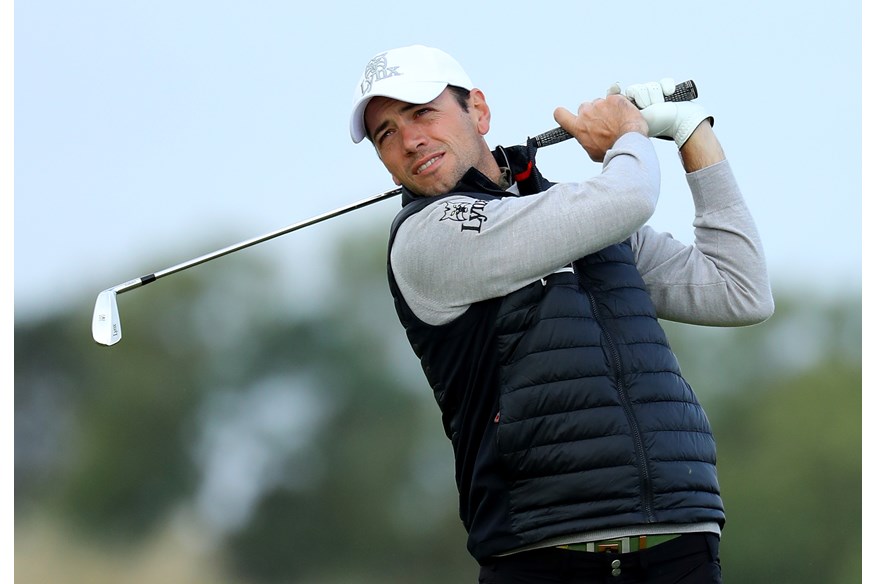Nick Dougherty Column: Golf can be traumatic when things are going badly
Last updated:
‘I would hide away in my hotel room so I didn’t have to face the media’: In our last issue of TG, regular columnist Nick Dougherty opened up about his battle with the mental side of the game when it wasn’t going going his way on the course…
I’m not going to lie to you – this is my favourite time of the year. The Major season. It’s crunch time for all the big guns, and a chance for the underdogs – the 250-1 shots – to finally make a name for themselves. We’re all guilty of focusing on the favourites, but it’s the people further down the ranking who really intrigue me. They are the guys who need it most. That first win can help to secure their future on the tour, but even a top 10 can make all the difference.
It’s easy to be critical of these players if they start playing conservatively down the stretch when they need to make birdies to win. But what we often forget is the disparity in prize money and ranking points between finishing second or fifth. All it takes is one bad tee shot when you are chasing and that can make the difference between keeping or losing your tour card.
It’s never nice playing with a mentality of ‘this is what I could lose, rather than this is what I could gain,’ but sometimes it’s a necessity when you’re just starting out and struggling for confidence. Justin Rose once said that he used to start at the bottom of the leaderboard and work his way up to find his name. He now has that luxury of turning up to a tournament with the sole focus of winning; whereas the majority of tour pros turn up thinking about paying their mortgage. I won’t deny that I would much rather play golf for a living than be working in an office. But it doesn’t mean the presssures aren’t the same.
Golf is unique in the sesnse that you don’t always get out what you put in. I never worked harder than when I really sucked at the game, and I arguably went through the motions when I was playing my best golf. That’s probably one of the secrest to achieving success. But when things are going badly, it’s hard to sit back and do nothing. You want to get stuck in and beat thousands of golf balls.
There are hundreds of players doing just that – working dusk to dawn – but we very rarely hear about them because if you’re not in contention, you’re not part of the story.
Ironically, the best players are probably better at dealing with failure than the guys who fail more often. Rory is a great example. Before his victory at Bay Hill, everyone was an expert on his game and his putting woes were getting brought up in every press conference. I know from experience how hard that is to deal with, but he never lost belief in what he was doing and now he’s part of the conversation again.
My biggest regret is that I started listening to what was being said, and underestimated what I had in the first place. In the end, I became so desperate to improve that I kept making changes. Rebuilding my swing filled me with optimism but when I kept doing it and then tried to go back to my natural swing, I was already too far gone.
Things eventually got so bad that I would hide away in my hotel room after every round so I didn’t have to face the media and explain myself. I felt like I was being judged and it was a horrible feeling. No one likes to feel bad about themselves, and I really struggled to deal with that mental stress. In hindsight, I think that contributed to me missing 11 of my last 14 cuts on Tour.
There was one occasion where a coach, who I had never even met, came up to me when I was walking to the scorer’s hut after failing to qualify for the US Open and said: ‘I forecasted your demise two years ago, I can fix it for you.’
I nearly took his head off, and actually had to be pulled back by my coach Stuart Cartwright, who was caddieing for me at the time. It was a despicable thing to do, but it wasn’t an isolated incident and there are plenty of coaches and psychologists still out there who specifically target players when they are at their most vulnerable.
I remember coming off Valderrama after shooting two big numbers and missing the cut, and David Duval put his arm around my shoulder to console me. I then started speaking to my coach who was standing behind him and all he kept saying to me was ‘it’s alright, it’s alright.’ Eventually, he just hugged me and I broke down in tears about 50 yards from the 18th green. I just wanted it so bad, and felt like I had let myself down and wasted what I had.
When I look back now, I’m very grateful for what I was lucky enough to achieve. Those memories stick out now, more so than those tough times, because there really is no better feeling than when you are playing well. But when you start battling your game, that pursuit for perfection and desire to be the best is physically and mentally debilitating – to the point that I can’t even quantify. That’s why any win is so precious because the longer the wait goes on, the harder it is to believe that you will get where you want to be.

